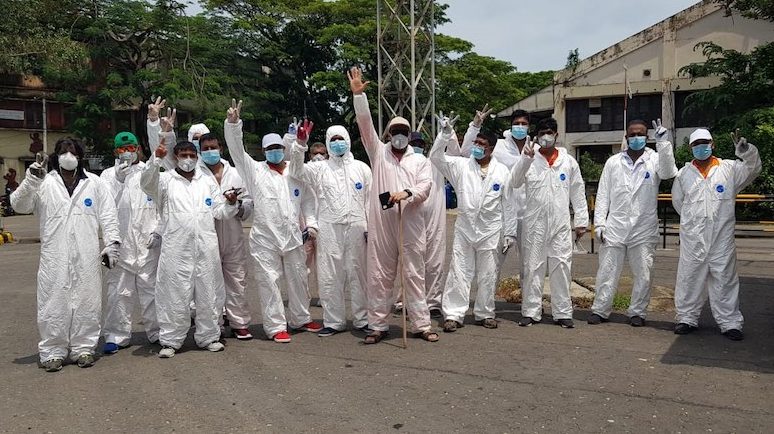IMO and UNCTAD reiterate urgent crew repatriation message

Two UN bodies yesterday repeated urgent calls to quickly resolve the humanitarian crisis unfolding on ships across the world, stressing the need for governments to promptly allow crew changes.
The United Nations Conference on Trade and Development (UNCTAD) and the International Maritime Organization (IMO) stated in a joint letter: “Crew changeovers are essential for the continuity of shipping in a safe and sustainable manner. It’s estimated that starting in mid-June 2020 as many as 300,000 seafarers a month will require international flights to enable ships’ crew changeover. About half will travel home by aircraft for repatriation while the other half will join ships. And approximately 70,000 cruise ship staff are waiting for their repatriation.”
Unions have given shipping to the middle of this month to resolve the crew repatriation issue, with many seafarers now at sea for more than a year. Unions have warned a failure to come up with a global solution by early next week could mean world trade will suffer.
This week certain important trading places such as Canada and Hong Kong have made important moves to make crew change operations far more simple, but there is still little global cohesion on the matter.
The statement from IMO and UNCTAD warned that the for for humanitarian reasons crew changes cannot be postponed indefinitely. Access to medical care for sick or injured crew and to medical prescriptions must also be provided.
In the statement, UNCTAD and IMO also reaffirmed the urgent need for “key worker” designation for seafarers, marine personnel, fishing vessel personnel, offshore energy sector personnel and service personnel at ports.
Governments and relevant national and local authorities were told they ought to recognise that these workers provide essential services, regardless of their nationality, and should thus exempt them from travel restrictions when in their jurisdiction.
The statement stressed: “We emphasize that, for trade to continue during these critical times, there is a need to keep ships moving, ports open and cross-border trade flowing, while at the same time ensuring that border agencies can safely undertake all necessary controls. International collaboration, coordination and solidarity among all is going to be key to overcoming the unprecedented global challenge posed by the pandemic and its longer-term repercussions.”
Looking beyond the current situation, UNCTAD and IMO urged governments to pursue collaborative efforts to identify and remove any unnecessary regulatory obstacles to post-pandemic recovery and to facilitate maritime transport and trade in these difficult times.
They encouraged pragmatic approaches, such as granting exemptions and waivers where necessary and appropriate. Efforts should be made to facilitate electronic means for ship-shore, administrative and commercial interactions. There should be effective sharing of pre-arrival information and other Covid-19-related reporting requirements for ships, as well as the provision of adequate equipment and resources to customs and border control stations in ports.
The joint statement highlighted that in the longer term some of the measures to confront the coronavirus crisis may offer other important benefits, such as encouraging further investment in digitalisation and advancing efforts to improve ships’ energy efficiency and reduce greenhouse gas emissions from shipping.
Seafarers are under immense stress right now. A recent study by the ITF and Yale University showed that even before the advent of the Covid-19 pandemic, 20-25% of seafarers suffered from anxiety or depression and that 20% had recent thoughts of suicide. The same study showed that rates of accidents and illness doubled when seafarers were anxious or depressed.
Chris Hall from the American Club, a leading name in P&I, aired a video this week detailing five things that the industry can do now to help seafarers cope with feelings of anxiety and/or depression, carried below.

No one ignores that the merchant seaman is immersed in an unprecedented crisis. But this incessant show orchestrated by the IMO and media solves absolutely nothing! It only serves to promote the feeling of chaos. Give decision making back to ships!
Paper is nothing
Where is the action?
Why so many port reman closed?after the paper of IMO?
Fujairah uae—Kuwait-India
What is the action for crew changes?
I don’t see nothing except the paper for second time
Nothing’s gonna be done. There are only a few ways for a crew to get off a ship now that includes being med evac, lifeboat/liferaft or bodybag.